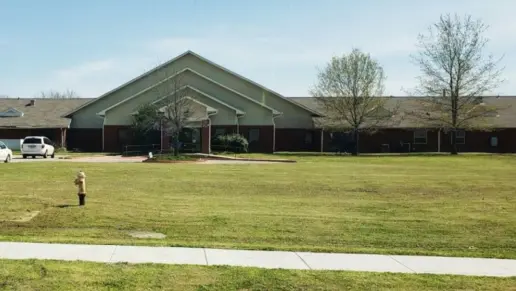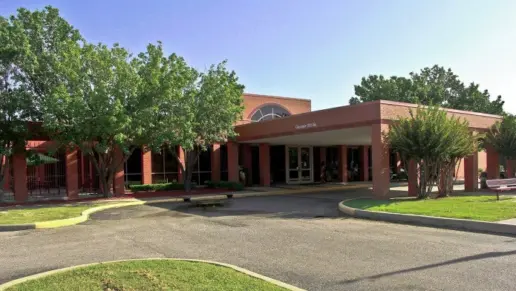About Northwest Center for Behavioral Health
Northwest Center for Behavioral Health is a certified community behavioral health clinic that helps with substance use and mental health issues. They also support community residents with co-occurring conditions. They’re located at East County Road in Fort Supply, Oklahoma. The location is easily accessible through State Highway 183 and nearby major roads. So folks from surrounding areas like Woodward or Mooreland can reach the facility without hassle.
The facility prioritizes trauma informed and culturally competent treatment for substance abuse. Services are available for youths and adults. Treatment is individualized based on your assessed needs. Trauma informed care looks at how unresolved trauma from your past may be influencing your substance use. Their care team may rely on evidence-based approaches to help you develop tools for managing trauma.
Culturally competent care ensures your treatment respects and aligns with your cultural values and beliefs. Services are provided in an outpatient setting involving individual and group therapy sessions. This helps you build strong coping strategies that foster sobriety and relapse prevention. Family support services are available as well. This helps strengthen your support system by improving communication and mending relationships with your loved ones.
They offer medication assisted treatment (MAT) to support individuals with opioid addiction or alcoholism. This technique uses FDA approved medication alongside counseling to support complete recovery. The meds help curb craving and ease withdrawal symptoms while counseling tackles the psychological symptoms of the addiction. Thanks to their pharmacy services, accessing meds for your MAT program and other medical issues is pretty easy. They even offer primary care.
Your individualized care will include medication evaluation and management if you’re dealing with co-occurring conditions. They also offer recovery support services. This focuses on helping you maintain sobriety through peer-based guidance, emotional support and practical strategies for managing daily challenges.
The facility is really committed to improving the lives of community residents through quality behavioral health services. Their health and wellness programs can benefit your overall wellbeing. This may include fitness activities, nutrition counseling, and stress management workshops.
They also offer case management services. This primarily involves connections to community resources like employment support, housing assistance and medical care. This can help your lasting recovery efforts.
Other Forms of Payment
Medicaid is a state based program that helps lower-income individuals and families pay for healthcare. Medicaid covers addiction treatment so those enrolled can use their coverage to pay for rehab. When a program accepts Medicaid the client often pays very little or nothing out of their own pocket.
Private insurance refers to any kind of healthcare coverage that isn't from the state or federal government. This includes individual and family plans offered by an employer or purchased from the Insurance Marketplace. Every plan will have different requirements and out of pocket costs so be sure to get the full details before you start treatment.
Self-pay involves paying for treatment out of your own pocket. You can use savings or credit, get a personal loan, or receive help from family and friends to fund your treatment. If you don't have insurance or your insurance plan doesn't cover a specific program, self-pay can help ensure you still get the care you need.
Medicare is a federal program that provides health insurance for those 65 and older. It also serves people under 65 with chronic and disabling health challenges. To use Medicare for addiction treatment you need to find a program that accepts Medicare and is in network with your plan. Out of pocket costs and preauthorization requirements vary, so always check with your provider.
Military members, veterans, and eligible dependents have access to specific insurance programs that help them get the care they need. TRICARE and VA insurance can help you access low cost or no cost addiction and mental health treatment. Programs that accept military insurance often have targeted treatment focused on the unique challenges military members, veterans, and their families face.
Addiction Treatments
Levels of Care
Treatments
Many of those suffering from addiction also suffer from mental or emotional illnesses like schizophrenia, bipolar disorder, depression, or anxiety disorders. Rehab and other substance abuse facilities treating those with a dual diagnosis or co-occurring disorder administer psychiatric treatment to address the person's mental health issue in addition to drug and alcohol rehabilitation.
Mental health rehabs focus on helping individuals recover from mental illnesses like bipolar disorder, clinical depression, anxiety disorders, schizophrenia, and more. Mental health professionals at these facilities are trained to understand and treat mental health issues, both in individual and group settings.
Programs


Clinical Services
Cognitive Behavioral Therapy (CBT) is a therapy modality that focuses on the relationship between one's thoughts, feelings, and behaviors. It is used to establish and allow for healthy responses to thoughts and feelings (instead of unhealthy responses, like using drugs or alcohol). CBT has been proven effective for recovering addicts of all kinds, and is used to strengthen a patient's own self-awareness and ability to self-regulate. CBT allows individuals to monitor their own emotional state, become more adept at communicating with others, and manage stress without needing to engage in substance abuse.
Experiential therapy is a form of therapy in which clients are encouraged to surface and work through subconscious issues by engaging in real-time experiences. Experiential therapy departs from traditional talk therapy by involving the body, and having clients engage in activities, movements, and physical and emotional expression. This can involve role-play or using props (which can include other people). Experiential therapy can help people process trauma, memories, and emotion quickly, deeply, and in a lasting fashion, leading to substantial and impactful healing.
Group therapy is any therapeutic work that happens in a group (not one-on-one). There are a number of different group therapy modalities, including support groups, experiential therapy, psycho-education, and more. Group therapy involves treatment as well as processing interaction between group members.
In individual therapy, a patient meets one-on-one with a trained psychologist or counselor. Therapy is a pivotal part of effective substance abuse treatment, as it often covers root causes of addiction, including challenges faced by the patient in their social, family, and work/school life.
Nicotine Replacement Therapy (NRT) is a way of getting nicotine into the bloodstream without smoking. It uses products that supply low doses of nicotine to help people stop smoking. The goal of therapy is to cut down on cravings for nicotine and ease the symptoms of nicotine withdrawal.
Trauma therapy addresses traumatic incidents from a client's past that are likely affecting their present-day experience. Trauma is often one of the primary triggers and potential causes of addiction, and can stem from child sexual abuse, domestic violence, having a parent with a mental illness, losing one or both parents at a young age, teenage or adult sexual assault, or any number of other factors. The purpose of trauma therapy is to allow a patient to process trauma and move through and past it, with the help of trained and compassionate mental health professionals.
Contact Information
1 Mile East
U.S. Highway 270
Fort Supply, OK 73841


